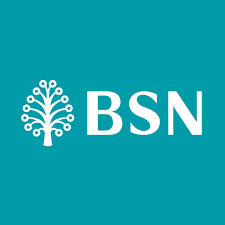Holistic Care and Patient-Centered Practice: BSN programs emphasize the importance of a holistic approach to patient care, taking into account not only the physical but also the emotional, psychological, and social needs of patients. This patient-centered nurs fpx 4010 assessment 1 approach allows BSN nurses to advocate for interventions that consider the whole person, not just the disease or condition. By fostering strong nurse-patient relationships, BSN nurses are better positioned to understand patients’ preferences, values, and concerns, which they can then advocate for in care planning and decision-making.
">
 verified_user
verified_user
About lmno
Advocating for Patients: The Critical Role of BSN Nurses
Nurses are often the first line of care in healthcare settings, and as such, they play a critical role in advocating for patients' rights, safety, and well-being. The role of advocacy in nursing is multifaceted, encompassing everything from ensuring that patients' voices are heard in care decisions to safeguarding them from harm and promoting policies that enhance healthcare quality. Nurses with a Bachelor of Science in Nursing (BSN) are especially well-prepared to fulfill the role of patient advocates. They are equipped not only with clinical skills but also with a solid foundation in leadership, communication, ethics, and policy that enables them to be effective advocates for their patients in a variety of settings. This article explores the critical role of BSN nurses in advocating for patients and the Nursing Essay Writing Services key ways in which their advocacy enhances patient care and the healthcare system as a whole.
The Concept of Advocacy in Nursing
Advocacy in nursing refers to the act of supporting, defending, and representing patients’ rights and interests within the healthcare system. Nurses, by virtue of their position at the bedside and their deep patient interaction, are uniquely placed to observe, assess, and respond to patient needs. Patient advocacy is rooted in the ethical and moral responsibility of nurses to protect the dignity, autonomy, and safety of patients, ensuring that they receive high-quality care and have their preferences respected.
The American Nurses Association (ANA) defines patient advocacy as the nurse's responsibility to speak up for patients who may be unable to advocate for themselves. This can involve a wide range of activities, such as ensuring informed consent, communicating concerns to the healthcare team, protecting privacy and confidentiality, and addressing potential threats to patient safety. Advocacy also extends to supporting patients in navigating complex healthcare systems, ensuring that they have access to the resources and care they need to achieve the best outcomes.
The Unique Role of BSN Nurses in Patient Advocacy
Nurses with a Bachelor of Science in Nursing (BSN) possess specialized training that enhances their ability to advocate for patients effectively. While all nurses are trained to provide excellent patient care, BSN programs specifically prepare nurses for leadership roles, critical thinking, evidence-based practice, and interprofessional collaboration—skills that are essential for advocating for patients. BSN nurses are equipped with a deep understanding of the ethical, legal, and social aspects of care and are trained to work collaboratively with patients, families, and the healthcare team to ensure that patients' voices are heard and their needs met.
Some of the core aspects of the BSN program that enhance advocacy include:
-
Holistic Care and Patient-Centered Practice: BSN programs emphasize the importance of a holistic approach to patient care, taking into account not only the physical but also the emotional, psychological, and social needs of patients. This patient-centered nurs fpx 4010 assessment 1 approach allows BSN nurses to advocate for interventions that consider the whole person, not just the disease or condition. By fostering strong nurse-patient relationships, BSN nurses are better positioned to understand patients’ preferences, values, and concerns, which they can then advocate for in care planning and decision-making.
Business Category
- Education
Photo Gallery
No Data Found...
Services Offered
Write Your Reviews
User Reviews
Overall Ratings
based on 1 reviews
Reviews
-

Vickie
2024-11-24Wow, stunning site. Thnx ... https://www.korsosanockie.pl
Business Tag
- DFD
Get Quote

lmno
Address: 637
Our Location
Company Info
- Contact name kawelat543
- Contact number 03329493926
- Email id lmno@eqvox.com

WebDirex new way to Present Your Business
Webdirex business listing directory allows all companies to present themselves online for FREE.
Copyright © 2023 Web Direx








